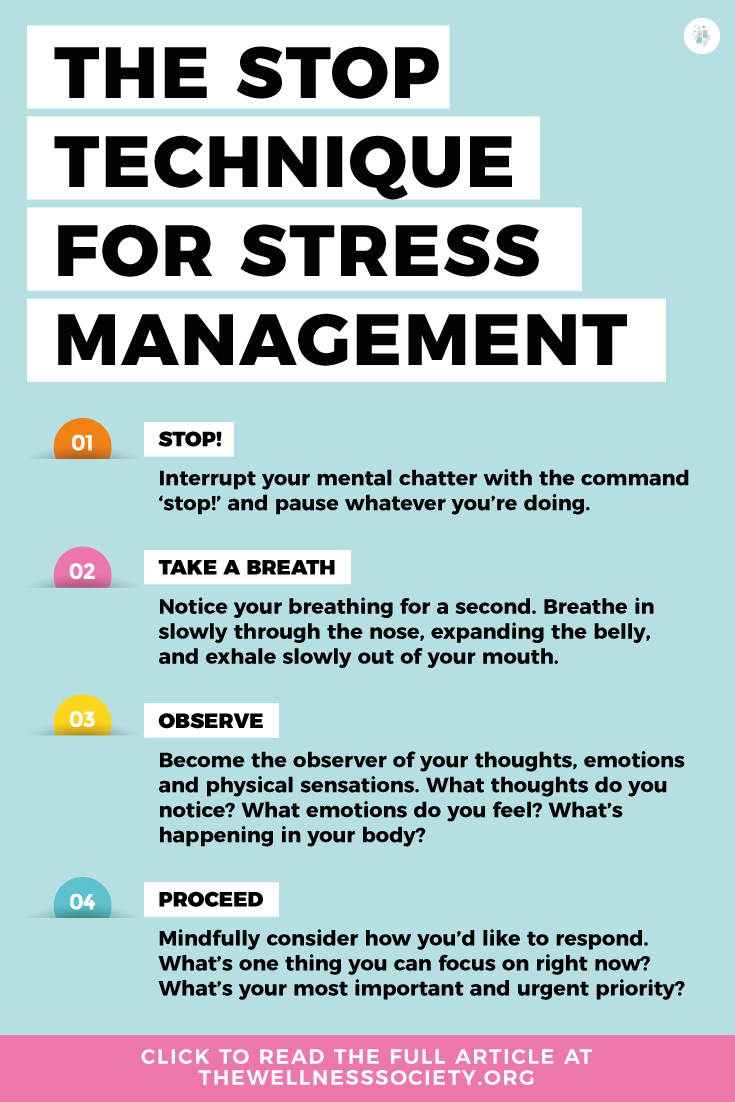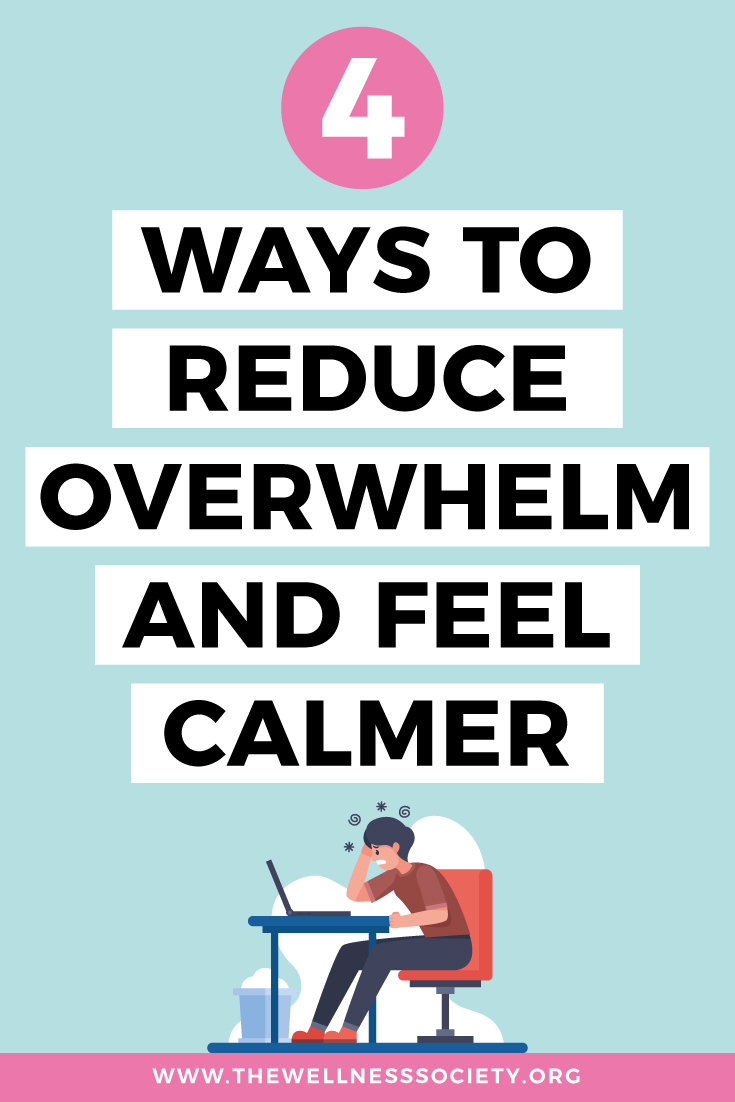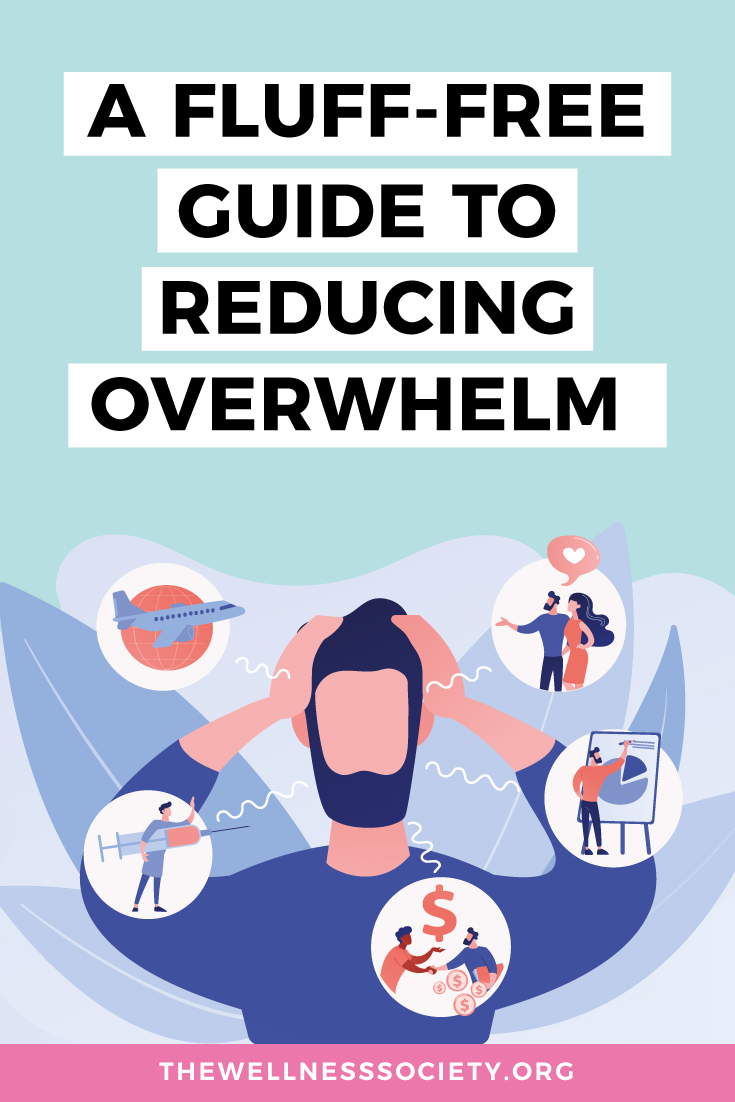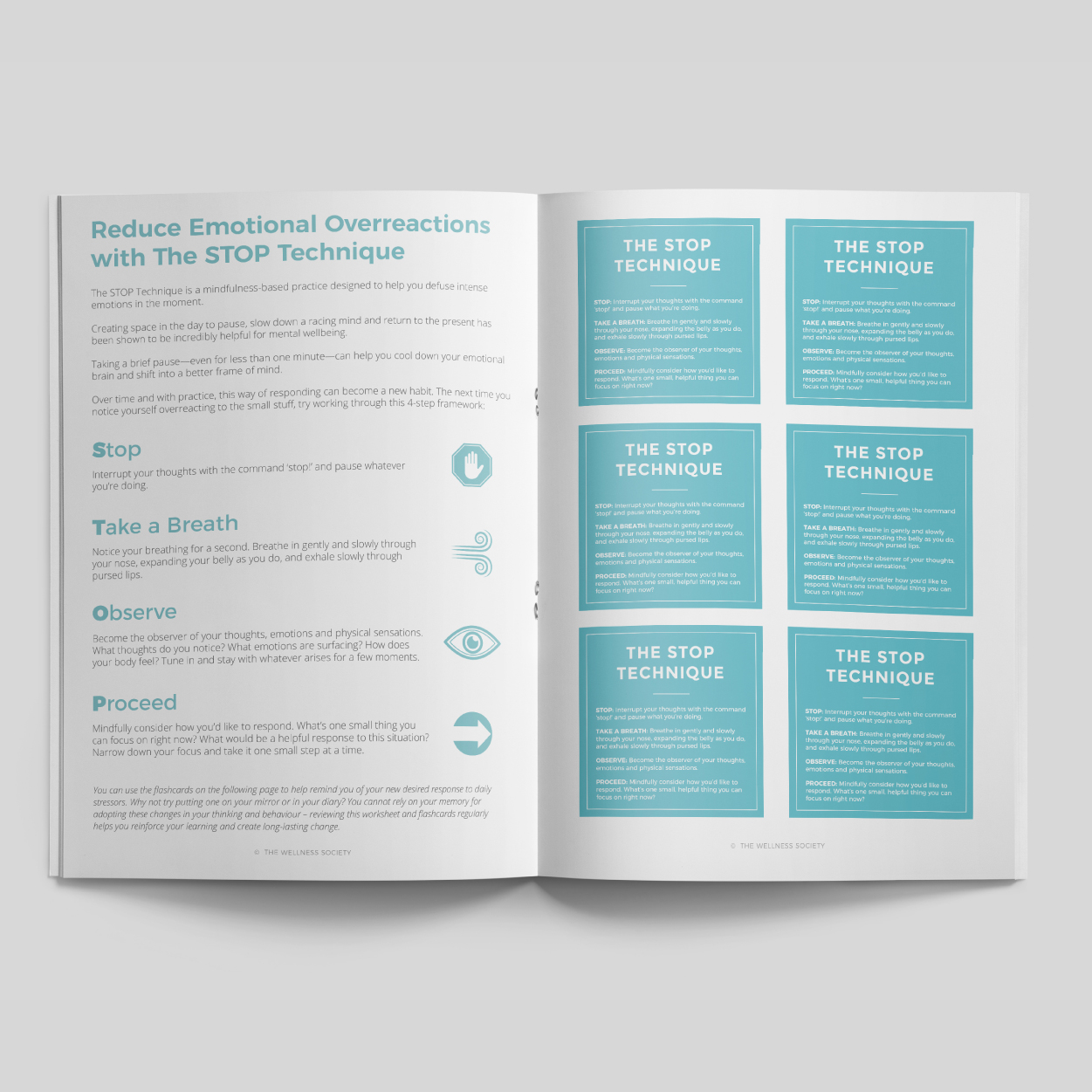Wondering how to stop feeling overwhelmed? In our always-on, busy-glorifying society, it’s clear feeling overwhelmed is a universal struggle.
So too is the self-inflicted pressure we put on ourselves. Perfectionism, defined as “as a combination of excessively high personal standards and overly critical self-evaluations”, is officially on the rise. Growing perfectionistic tendencies have been identified as a key driver of depression and anxiety in millennials.
As Nicky Lidbetter, CEO of Anxiety UK, explains:
"Individuals who experience high functioning anxiety are often very driven, high achievers who set incredibly high standards for themselves. They can find themselves constantly striving for perfection in everything they turn their hand to."
When you feel overwhelmed from both external and internal pressures, it’s like you’re signalling to your brain that your demands outweigh your resources. Your brain interprets this as danger, and you risk triggering the ‘fight, flight, or freeze’ stress response.
If this goes on long enough, you might start experiencing physical symptoms of anxiety (such as breathing difficulties, heart palpitations and IBS), as well as low mood and energy.
The key to preventing this is to develop your mental wellbeing skills. Without these skills, you might find yourself resorting to your natural instinct: do nothing and withdraw. (Remember: it’s called the fight, flight, or freeze response.) Recognising your tendency to freeze when overwhelmed is the first step in developing a helpful response strategy. Once you know you’re in the stress response, you can mindfully decide what to do next.
Keep reading to discover more about these four ways to stop feeling overwhelmed:
- Cultivate the one-focus mindset
- Adopt the can-control mindset
- Develop a relaxation habit
- Express your feelings
1. Cultivate the One-Focus Mindset
When you first notice yourself feeling overwhelmed, you can use the ‘STOP technique’ to help you focus on just one thing at a time. Head to our Free Tools Library to download The STOP Technique Worksheets and Flashcards.
2. Adopt the Can-Control Mindset
Studies show that when we adopt a can-control mindset, we see meaningful and lasting differences in our wellbeing, health and performance.
When you notice thoughts about factors outside your control, practice shifting your attention to what you can control. To help with this, use the My Spheres of Influence Worksheet on page seven of our Coronavirus Anxiety Workbook.
Using a productivity app can also help you to stay focused on what you can control. We recommend Google Keep and Google Calendar. Use them to break down tasks into smaller steps, create to do lists and set reminders. As well as defusing overwhelm, this can help you become more organised and productive.
3. Develop a Relaxation Habit
If you regularly feel overwhelmed and have developed ongoing physical anxiety symptoms, relaxation is key to feeling better. To understand why, we need to delve into the science of what’s happening in your body.
The ‘fight, flight or freeze’ stress response is triggered by a part of your nervous system whose job it is to control your automatic functions (e.g., your breathing, heartbeat, and digestive processes). This part of your nervous system is called the autonomic nervous system (ANS).
Your ANS is split into two branches: the sympathetic branch and the parasympathetic branch. These branches work opposite each other and only one can dominate at a time.
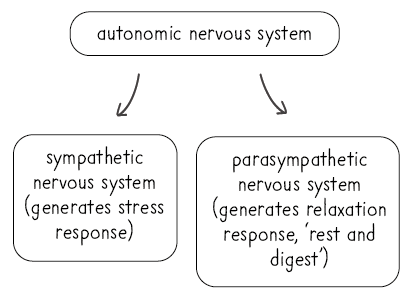
Image from The Framework
In chronic stress, your sympathetic nervous system goes into overdrive. This is what gives rise to all of the distressing physical sensations.
To feel calmer, you need to balance the activity of your ANS by activating our parasympathetic nervous system (PNS, a.k.a., 'the relaxation response'). This demonstrates a highly important fact: rest and relaxation are productive! Adequate rest helps you be your healthiest self.
When it comes to relaxation (and improving your mental wellbeing in general), different things work at different times for different people. What you need to do is become the scientist of your own wellbeing, trying and testing different methods to build your own mental wellbeing toolkit.
It’s important to remember that relaxation is a skill. Finding it difficult to relax is incredibly common. Practice makes progress!
4. Express Your Feelings
Finally, expressing your feelings is a powerful way to stop feeling overwhelmed. So powerful, it’s actually an in-built biological instinct.
Research shows we release a hormone, oxytocin, that encourages us to seek social support during stressful times. This has been called the ‘tend and befriend’ response to stress.
Women have been shown to reach out to others significantly more than men. This may even relate to women’s higher life expectancies. The theory is that the male response to stress (which includes higher levels of social withdrawal, aggression, and substance abuse) puts them at higher risk for adverse health-related consequences.
In contrast, the ‘tend and befriend’ response used more by women has been shown to reduce the stress response by lowering heart rate, blood pressure and cortisol.
If you don’t feel you have anyone you can open up to, there are lots of ways to do this anonymously. Find resources for this in our free Social Connection Planner.
Research also shows expressing your feelings in a journal can be powerfully therapeutic! Why not give our Daily Mental Health Journal a try?
Summary
Wondering how to stop feeling overwhelmed? Here are four ideas:
- Cultivate the one-focus mindset
- Cultivate the can-control mindset
- Develop a relaxation habit
- Express your feelings
Why not bookmark this page and return to it next time you feel overwhelmed? There are many steps you can take to help yourself feel calmer. You've got this!
A Toolkit to Help You Reduce Stress and Anxiety
Research shows that self-help materials are often enough for people to overcome mild to moderate mental health difficulties without professional support.
Our self-guided program includes tools from CBT, DBT, ACT and more, so you can discover what works best for you. Check out The Mental Wellbeing Toolkit today – it's "like 10 therapy sessions in one."

About Rebecca
Rebecca is the founder of The Wellness Society and author of two fluff-free books, The Framework and Understanding and Healing Trauma. She's passionate about creating concise and compassionate mental health and wellbeing tools that address the root causes of distress. Read more about her views on our About page.Pin For Later
